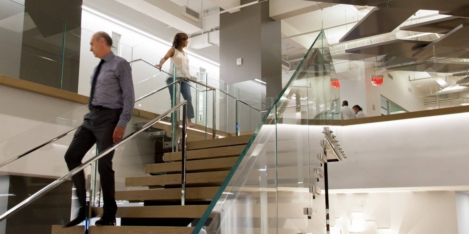May 25, 2018
Coworking trends are influencing design and layout of central London offices

The rise of coworking and flexible working are affecting the design and layout of central London offices, with many traditional offices being given makeovers to reflect current trends in wellness and connectivity. And according to Cluttons’ Central London Office Market Outlook for Spring 2018, the Central London office market continues to experience a comparatively low vacancy rate – currently standing at 5.9 percent percent well below the 15 year average of just under 8 percent, which is more or less the same following Brexit in mid 2016. In comparison, following the peak of the last cycle at the end of 2007, the overall vacancy rate in Central London moved out from 7 percent to an average of 8.2 percent in the following two years. Landlords have been generally far more responsive to the recent downturn than in previous cycles; not only in relation to rent but also lease flexibility, together with a willingness to cap service charges and dilapidations with older style buildings. Alongside this, the volume of flexible office space in London rose by 20 percent last year as smaller firms move into serviced or managed offices.







 One in four workers (28 percent) would move jobs if they weren’t allowed to work from home, increasing to nearly half (45 percent) of millennial workers. Yet while two thirds of UK employees (65 percent) can work from home, 35 percent are still not given the option of working remotely.
One in four workers (28 percent) would move jobs if they weren’t allowed to work from home, increasing to nearly half (45 percent) of millennial workers. Yet while two thirds of UK employees (65 percent) can work from home, 35 percent are still not given the option of working remotely. 





















May 18, 2018
The toxic workplace is not only about culture, but is a very real physical problem
by Johanna Ljunggren • Comment, Environment, Workplace design
(more…)